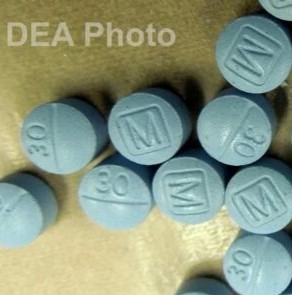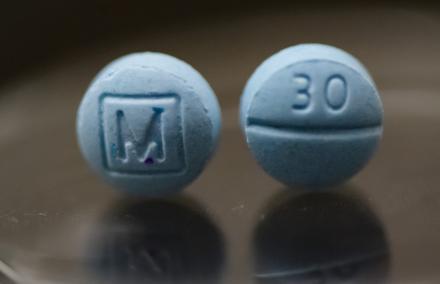Your Cyber Monday Shopping Could Send Cash to Criminal Cartels

Americans shopping online spent nearly $10 billion on Black Friday and are expected to spend a record $12 billion on Cyber Monday. Unfortunately, law enforcement experts say, too much of that holiday cash will go to criminal cartels — the same ones responsible for drug smuggling and smash-and-grab robberies across the U.S.
How? Thanks to the massive amount of illicit, stolen, and counterfeit consumer goods being sold to Americans, mostly via online shopping.
“The harsh reality is Santa is not the only one handing out toys this season,” said Alysa Erichs with United to Safeguard America from Illegal Trade (USA-IT). “Black market criminals have exploited the boom in online shopping by misleading consumers into buying stolen and counterfeit goods, many of which threaten the economy and our nation.”
Erichs, a former Acting Executive Associate Director of Homeland Security Investigations, made her remarks at a recent press event featuring members of law enforcement and America’s retail sector. They all had the same message: Shopping for deals online could mean sending money to criminal gangs.
Michael Ball with Homeland Security Investigations told reporters the largest counterfeit bust in U.S. history had just happened two weeks earlier. The Department of Justice announced the “seizures of approximately 219,000 counterfeit bags, clothes, shoes, and other luxury products with a total estimated manufacturer’s suggested retail price (‘MSRP’) of approximately $1.03 billion.”
Ball presented a display of seized counterfeit goods ranging from high-end electronics like iPhones to toys and luxury retail items, including Louis Vitton handbags. One popular item is a hoverboard built with batteries that “tended to burst into flame,” Ball said.
Jennifer Hanks, director of brand protection for the American Apparel & Footwear Association (AAFA), also highlighted the dangers consumers face from fake goods.
Authorities recently seized a shipment of children’s sleepwear marked as flame retardant but was not. And she noted a recent study that tested 47 counterfeit products. Of those, 17 were found to have dangerous levels of lead, arsenic, or other substances, she said.
And, Hanks added, counterfeit product and organized retail crime cost real Americans their jobs. The fakers destroyed over 300,000 U.S. jobs in various industries, such as toys, water filters, pharmaceuticals, personal care products, and car parts.
“If it can be made, it can be counterfeited,” she said.
Some of those job losses have been felt here in the Keystone State. The Pennsylvania Manufacturers’ Association is a member of USA-IT, and PMA President and CEO David N. Taylor told DVJournal counterfeits are part of the “ongoing economic warfare” being waged by the Chinese communist government against U.S. businesses and workers.
More than 75 percent of the value of counterfeit and pirated goods seized in the U.S. originate in China and Hong Kong, and online Chinese sellers often rely on Mexican drug cartels to skirt U.S. Customs and import lethal goods like fentanyl and fake pharmaceuticals, according to USA-IT.
“This is something that’s systematically bigger than any one company,” said Taylor. “We need a whole of government response.”
The counterfeiting taking place is “systematic and unrelenting,” Taylor added. “The problem is out of control.”
The impact of organized retail theft is being felt by shoppers in cities like Philadelphia, which has seen stores close across the city over the past two years. In September, The Wall Street Journal reported retail theft in Philly increased by more than 30 percent compared to a year earlier. Some of the same goods being stolen in smash-and-grab robberies that make the nightly news also make their way to holiday shoppers, often via the internet.
Ball said the organized gangs grabbing armloads are luxury goods and high-end clothes aren’t shopping for their girlfriends. “It’s being resold to criminal organizations to fund organized crime,” he said. “That’s what’s happening.”
“People are being duped to be part of organized crime,” he said. “You’re giving hundreds and thousands of dollars to people who are flooding guns and drugs onto your streets. It’s one of the most foolish things you can possibly think of.”
Ball said counterfeit goods affect the economy and consumers who purchase them.
“It’s crucial that we all remain vigilant about the dangers posed by counterfeit goods,” said Ball. “If it sounds too good to be true, it probably is.”





